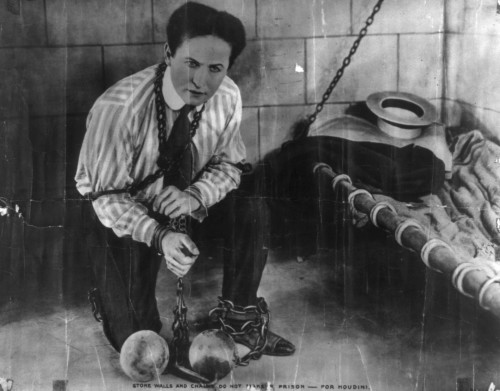Jesus Christ is the Real Deal to beat all Real Deals. This Father’s Day message was first preached at Plymouth Congregational Church of Racine, WI on June 21, 2015 by Barbara Shafer.
Making the Theological Understandable
Jesus Christ is the Real Deal to beat all Real Deals. This Father’s Day message was first preached at Plymouth Congregational Church of Racine, WI on June 21, 2015 by Barbara Shafer.
Last Sunday we had a guest preacher at Plymouth Congregational Church and he continued our series of Acts of the Holy Spirit and the Apostles by doing Acts 13:13-52. To keep us up with our study of Acts online, enjoy this devotional on the same passage.
 The Gospel is the most interesting and most powerful set of words ever spoken.
The Gospel is the most interesting and most powerful set of words ever spoken.
It cuts both ways.
Paul and Barnabas, after John Mark deserted them, continued on what we’d refer to as Paul’s 1st Missionary Journey. They will arrive in Pisidian Antioch which isn’t the same as the Antioch from which they were sent. It’s kind of like a friend of mine who tells me about his church friends all of whom are named Alan or Barbara…or my old neighborhood where every man was named Mike. (It sure made it easy to remember people’s names.)
Antioch from where they were sent is in Syria and trust me, you wouldn’t want to go there today for safety reasons. Pisidian Antioch is in modern day Turkey and I’m not sure it’s all that much better there. Sacred sites are sometimes dangerous ones.
The Gospel was first preached in the synagogue because the rulers asked Barnabas and Paul to speak. Dangerous thing, letting Paul start talking. He addresses the men of Israel and the Gentiles and begins to tell them that the Gospel is for all. It cuts both ways.
It’s fulfillment for the Jews. It’s light for the Gentiles.
First, the Jewish history,
Acts 13: 16 Standing up, Paul motioned with his hand and said: “Men of Israel and you Gentiles who worship God, listen to me! 17 The God of the people of Israel chose our fathers; he made the people prosper during their stay in Egypt, with mighty power he led them out of that country, 18 he endured their conduct for about forty years in the desert, 19 he overthrew seven nations in Canaan and gave their land to his people as their inheritance. 20 All this took about 450 years. “After this, God gave them judges until the time of Samuel the prophet. 21 Then the people asked for a king, and he gave them Saul son of Kish, of the tribe of Benjamin, who ruled forty years. 22 After removing Saul, he made David their king. He testified concerning him: ‘I have found David son of Jesse a man after my own heart; he will do everything I want him to do.’ 23 “From this man’s descendants God has brought to Israel the Savior Jesus, as he promised.
It cuts both ways: the message of salvation came to the Jews (those brothers, children of Abraham) and also to the God-fearing Gentiles (everyone else who feared God).
26 “Brothers, children of Abraham, and you God-fearing Gentiles, it is to us that this message of salvation has been sent.
But the reaction fell along party lines. The people of Jerusalem, their rulers and even many of the Jews in Pisidian Antioch rejected Jesus. They rejected Paul’s message of their Messiah, their Savior, having come in the person of Jesus of Nazareth.
27 The people of Jerusalem and their rulers did not recognize Jesus, yet in condemning him they fulfilled the words of the prophets that are read every Sabbath.
The Gospel cuts both ways. It cuts to the heart because the Jewish hearers knew their Bibles. They knew their prophets and they knew their history. But they didn’t want Jesus to be the answer.
Proving that Jesus is the answer from their own history—theirs and Paul’s history that he knew very well himself—Paul concludes, 38 “Therefore, my brothers, I want you to know that through Jesus the forgiveness of sins is proclaimed to you. 39 Through him everyone who believes is justified from everything you could not be justified from by the law of Moses. 40 Take care that what the prophets have said does not happen to you: 41 “‘Look, you scoffers, wonder and perish, for I am going to do something in your days that you would never believe, even if someone told you.'” (italics mine for emphasis)
Who would have thought that through Jewish rejection and crucifixion of the Messiah, the light of salvation would come to the Gentiles? The Gospel: It cuts both ways!
45 When the Jews saw the crowds, they were filled with jealousy and talked abusively against what Paul was saying. 46 Then Paul and Barnabas answered them boldly: “We had to speak the word of God to you first. Since you reject it and do not consider yourselves worthy of eternal life, we now turn to the Gentiles. 47 For this is what the Lord has commanded us: “‘I have made you a light for the Gentiles, that you may bring salvation to the ends of the earth.'” 48 When the Gentiles heard this, they were glad and honored the word of the Lord; and all who were appointed for eternal life believed.
Jewish response: They had first dibs and it led to pride and widespread rejection.
Gentile response: They were Johnny-come-latelies and they were glad of it.
This must have been a very memorable and teachable moment for Paul.
He always started at the synagogue and ended up with the Gentiles. It’s his calling, even though in his heart, he remained a Jew of Jews. A completed Jew of Jews. A broken heart for the brethren of his birth became a focal point of Paul’s greatest work: the Letter to the Romans. Chapters 9-11 are basically an explanation of what Paul witnessed here in Pisidian Antioch and his attempting to process what he knew from his own Jewish background and his mission to the Gentiles. His deep desire for his Jewish brothers to come to faith would be a hallmark of Pauline theology of grace. The Gospel, Paul points out, it cuts both ways. The Gentiles once were jealous of Israel’s chosen status. When Israel rejected their Christ, God used this opportunity to extend salvation to the Gentiles who didn’t need to become Jews to be saved. This makes Israel jealous. And regarding that very jealousy, Paul writes in Romans 11:25-32,
Romans 11:25 I do not want you to be ignorant of this mystery, brothers, so that you may not be conceited: Israel has experienced a hardening in part until the full number of the Gentiles has come in. 26 And so all Israel will be saved, as it is written: “The deliverer will come from Zion; he will turn godlessness away from Jacob. 27 And this is my covenant with them when I take away their sins.” 28 As far as the gospel is concerned, they are enemies on your account; but as far as election is concerned, they are loved on account of the patriarchs, 29 for God’s gifts and his call are irrevocable. 30 Just as you who were at one time disobedient to God have now received mercy as a result of their disobedience, 31 so they too have now become disobedient in order that they too may now receive mercy as a result of God’s mercy to you. 32 For God has bound all men over to disobedience so that he may have mercy on them all.
The Gospel. It Cuts Both Ways.
When we last left off with the adventures of the early disciples known as the Book of Acts of the Holy Spirit and the Apostles, James (the one who was the brother of John the beloved disciple) had just been put to death by the sword. Herod, the evil king, wanted to do the same thing to the apostle Peter. But God intervened and Peter did a Houdini, and escaped from prison because God sent an angel to free him. God is not done with Peter yet.
Do you remember our old cycle: Pure Church, Powerful Church, Growing Church, Persecuted Church?
It’s now being summarized by Growing Church, Persecuted Church. The purity and the power are evident in God’s presence and blessing of their work. Last week’s persecution might have been crowned with verse 24 But the word of God continued to spread and flourish.
I decided also to tie it in with this week’s passage because we see the word of God spreading and flourishing. As the church father, Tertullian, a theologian from 155 – c. 240 AD, famously wrote,
The blood of the martyrs is the seed of the Church.”
Luke, the author of Acts, now picks up the story of Barnabas and Saul and will pick up with Peter again soon. Kind of like “Meanwhile back at the ranch”… and we will see how God grows His Church.
The growth process is worship, obedience, and mission by ones set apart, or called to ministry.
Way back when I first came here, some of you may remember that I talked about how God was most interested in our purity as a church. Purity before numbers, I said. If we are pure in God’s sight, if we worship Him with a right heart, putting our own human needs and desires aside to put Him first, He will bless us as He did the early Church. He will grow Plymouth, just as He grew the Church in verse 24 But the word of God continued to spread and flourish. Spread and flourish sounds pretty good, doesn’t it?
So, back at the ranch:
25 When Barnabas and Saul had finished their mission, they returned from Jerusalem, taking with them John, also called Mark
What mission was that? Paul and Barnabas had been bringing the alms from Antioch to help the church at Jerusalem because of the persecution. Now they’ve returned back to Antioch from Jerusalem. This time with a guy named John, also called Mark. He’s Barnabas’ cousin and is widely thought to have been with Peter in Jesus’ final days and the one who was anonymously described in Mark 14:52 as a young man who fled naked when the soldiers arrested Jesus and tried to seize him too, but all they got were his clothes.
This John Mark has been affirmed by the early Church as the author of the Gospel according to Mark which many believe was the source material built upon by the other Gospels. Mark was no slouch when it came to the Gospel and following Jesus during His earthly ministry.
Barnabas and Paul bring him to Antioch and on Paul’s first missionary journey, but Mark will leave the mission trip early. He will abandon Barnabas and Paul in next week’s passage and there will be a significant disagreement among two intellectual and theological powerhouses (Barnabas and Paul) regarding what to do about him. Barnabas always the encourager. Paul says “No Way!” Barnabas and Mark, after the fallout with Paul, will not show up together again the Book of Acts. But Paul will mention them both and eventually come around to the point where he’ll ask for Mark to come to be with him during Paul’s final days on earth. Healed relationship. Mark would be as a son to him.
 So we’re still back at the ranch:
So we’re still back at the ranch:
25 When Barnabas and Saul had finished their mission, they returned from Jerusalem, taking with them John, also called Mark.
13:1 Now in the church at Antioch there were prophets and teachers:
Barnabas, Simeon called Niger, Lucius of Cyrene, Manaen (who had been brought up with Herod the tetrarch) and Saul. 2 While they were worshiping the Lord and fasting, the Holy Spirit said,
Let’s look at these guys. Barnabas we know has been an encourager from the beginning. Simeon called Niger was a Jewish man, and perhaps as many theologians suggest, he had a dark complexion and came to Antioch from what is now northern Africa. Why do I offer this? Well, Lucius the next guy in the series is from Cyrene. Cyrene is the Libyan modern day Sirte, Muammar Gaddafi’s hometown and where he was found hiding. It is the very same place where ISIS just took over the airport in Libya last week. It was a coastal town near Tripoli and Benghazi. The Coptic Christians who were killed were beheaded on the coast very near there. Manaen is a Jewish name and he was either related-to …or was a close friend of… the very same Herod who had John the Baptist’s head on a platter and was consulted in the trial of Christ. And lastly Saul.
It’s important to note the work that the spiritual leaders of this church, the prophets and the teachers, were doing. They were worshiping the Lord and fasting (which is one of the spiritual disciplines that spiritual leaders can do to focus their minds on the will of God). Worshiping here means ministering in a religious sense, as in prayer.
Note this important principle: God spoke to them through His Holy Spirit while they were worshiping.
The growth process of any God-honoring church or God-honoring mission begins in worship.
Get worship right
and you’ve got the beginnings of growth.
3 So after they had fasted and prayed [more worship], they placed their hands on them [Barnabas and Saul] and sent them off.
4 The two of them, sent on their way by the Holy Spirit, went down to Seleucia and sailed from there to Cyprus. 5 When they arrived at Salamis, they proclaimed the word of God in the Jewish synagogues. John was with them as their helper.
The second activity of the Holy Spirit regarding growth is He sends and we respond with obedience! Barnabas and Saul (the set apart and sent ones) and John as their helper go out in mission. They obey God. They don’t debate it. Form a million different committees to study it. They don’t open it up to a congregational vote. They worship. They hear. They obey, and they go.
They went to the island Cyprus which was Barnabas’ hometown, if you will. It will become known as Paul’s first missionary journey of which he will have 3 major ones and a final partial one from which he will not return. He will go to Rome where he will die.
6 They traveled through the whole island until they came to Paphos. There they met a Jewish sorcerer and false prophet named Bar-Jesus, 7 who was an attendant of the proconsul, Sergius Paulus. The proconsul, an intelligent man, sent for Barnabas and Saul because he wanted to hear the word of God.
Our process, we said, involves worship and hearing, obedience and going, and finally the mission of telling the Gospel truth. And the truth is not always well received or easy to speak. Sometimes persecution comes along in all kinds of sneaky ways.
8 But Elymas the sorcerer (for that is what his name means) opposed them and tried to turn the proconsul from the faith. 9 Then Saul, who was also called Paul, filled with the Holy Spirit, looked straight at Elymas and said, 10 “You are a child of the devil and an enemy of everything that is right! You are full of all kinds of deceit and trickery. Will you never stop perverting the right ways of the Lord? 11 Now the hand of the Lord is against you. You are going to be blind for a time, not even able to see the light of the sun.” Immediately mist and darkness came over him, and he groped about, seeking someone to lead him by the hand. 12 When the proconsul saw what had happened, he believed, for he was amazed at the teaching about the Lord.
Wow.
You are a child of the devil.”
It’s strange to think of such harsh words as being spoken in a spiritual, religious, or evangelistic setting. Especially by someone godly like Paul. Aren’t you at all worried, Paul? That you’re going to blow it? That your words will be offensive to the listeners? They’ll tune you out because you’re saying stuff that’s hard to hear and could be interpreted as nasty? In case we’re tempted to view this as Paul having simply lost his cool, Luke takes great pains to state that this was a Holy Spirit deal. Paul, filled with the Holy Spirit…before he spoke a word.
People who are gifted as prophets and evangelists like Paul sometimes communicate truth in a strong way because the outcome is so important. God is really serious about His Word, His Church, and salvation that cost Him the earthly lifeblood of His Only Son Jesus!
Can God be in such harsh words as “You are a child of the devil?” Absolutely! Those same words are in 1 John 3:10. Jesus, in speaking with the Pharisees, was even more emphatic in saying that same thing. And God was with Jesus. Jesus spoke some of the most offensive words ever spoken on this planet, yet none of it was sin. It had salvation as its goal. And sometimes those standing in the way of salvation need to have a harsh reality check like Paul gave this sorcerer. The salvation of Sergius Paulus was important to God. We’re told this proconsul was intelligent and he wanted to hear the Word of God. And Elymas was being the uninvited housefly at the picnic, the mosquito swarm, or hive of mean-bees trying to get in the way of the work of God. He had to be dealt with. So Paul did.
Missions—if a little opposition can somehow thwart it—will never produce growth. A miracle like what Sergius Paulus witnessed results in faith. It did with him.
In today’s passage, the Holy Spirit spoke. He sent. And He filled Paul with words that save. Where are you? Are you worshiping God with a whole heart? Are you listening for His voice? When He calls, are you willing to obey? And are you willing to take His salvation to the world outside our walls?
Let’s pray.
This message on being “Set Apart” for ministry describes the growth process for any church. It was first preached at Plymouth Congregational Church of Racine, WI on June 7, 2015 by Barbara Shafer.
Knock, Knock jokes have been part of American culture since the 1920s/30s. It started off as a children’s game and became a favorite parlor game. In 1934, the standard knock-knock joke format was used in a newspaper humor column. That joke was:
Laughter at knock-knock jokes is something children develop and carry into adulthood with increasing complexity. As adults, knock knock jokes are groaners, but we still enjoy clever language twists. But for kids, humor actually reflects a child’s increasing intellectual grasp of language and the world around him/her. The same type of thing that would elicit much laughter from a 1-year-old child (a game like peekaboo) would not be comprehended at all by a 6-month-old and a 6-year-old would find it really stupid. Knock-knock jokes, likewise, go from not being perceived to being funny to becoming “corny” humor, not meriting an LOL but maybe a temporary smile and then moving on.
 Knock Knock. Who’s there? Today’s Message. There are several different Who’s There? parts to today’s passage, but none of them are really a laughing matter.
Knock Knock. Who’s there? Today’s Message. There are several different Who’s There? parts to today’s passage, but none of them are really a laughing matter.
Percy-cution is ongoing and now it’s happened to James, the brother of John, who was put to death by the sword. He’s the second identified Christian martyr (you’ll remember that Stephen was the first back in Acts 7). When Herod and his soldiers, come knocking, you can be sure that if you’re a Christian, persecution is at the door.
Acts 12:1 It was about this time that King Herod arrested some who belonged to the church, intending to persecute them. 2 He had James, the brother of John, put to death with the sword. 3 When [Herod] saw that this pleased the Jews, he proceeded to seize Peter also. This happened during the Feast of Unleavened Bread.
Peter’s good friend James, one of the original disciples, the brother of the beloved disciple John…the sons of Zebedee, the sons of Thunder was put to death with the sword. Now, it seemed inescapable that after the Passover, Peter was next in line.
4 After arresting him, [Herod] put him in prison, handing him over to be guarded by four squads of four soldiers each. Herod intended to bring him out for public trial after the Passover.
The suspense in our story builds. Locked up with 4×4 soldiers to guard him. Could death be imminent?
Kind of like with the Vaudeville star, Harry Houdini. Harry Houdini was born as Erik Weisz in Budapest and arrived in the United States as a 4-year old with his mother. The family changed the Hungarian spelling of their surname to Weiss (the German spelling) and Erik’s name was changed to Ehrich. Friends called him “Ehrie” or “Harry”.
The family moved to Milwaukee when Ehrich was eight years old and they settled in Appleton, Wisconsin, where his father served as Rabbi of the Zion Reform Jewish Congregation. For the rest of his life, Houdini (aka Erich) would consider Appleton his hometown.
During his early years, Ehrich sold newspapers and shined shoes to help support the family. At the age of nine he appeared for the first time on stage, performing a trapeze act as “Ehrich, the Prince of the Air.” When he was 12, he hopped a freight car and ran away from home. A year later he returned to New York and continued to help support his family. What happened during his year away from his family, no one knows, and apparently, DCFS hasn’t investigated.

Houdini initially relied on traditional card tricks but his big break came when he began experimenting with escape acts and became a household name.
By the age of 39, Houdini began performing his signature act which required that he hold his breath for more than three minutes under water. This escape from the Chinese Water Torture Cell would be performed for the remainder of his professional career.
These escapes from seemingly impossible predicaments were popular with the public. Why? Because they formed an interesting metaphor for the lives of people in his audience, giving encouragement regarding the innate human capacity, desire, and drive to overcome adversity. To get out of bad situations. People saw his escapes and felt their own sense of escape from their problems.
In the 2014 History Channel mini-series about Houdini’s life, Houdini—having refused early medical treatment for his appendix after being punched in the abdomen by a university student—comes to the end of his human escapes. At the age of 52, he sorrowfully realizes that he is finally in a situation in which no magic trick or death-defying skill can help him. His fate—mortality—is one from which even The Great Houdini will not escape.
Houdini was punched in the abdomen and died. Peter, in today’s passage on the other hand, would be punched in the abdomen and live because there would be a Great Escape!
5 So Peter was kept in prison, but the church was earnestly praying to God for him. 6 The night before Herod was to bring him to trial, Peter was sleeping between two soldiers, bound with two chains, and sentries stood guard at the entrance. 7 Suddenly an angel of the Lord appeared and a light shone in the cell. He struck Peter on the side and woke him up. “Quick, get up!” he said, and the chains fell off Peter’s wrists. 8 Then the angel said to him, “Put on your clothes and sandals.” And Peter did so. “Wrap your cloak around you and follow me,” the angel told him. 9 Peter followed him out of the prison, but he had no idea that what the angel was doing was really happening; he thought he was seeing a vision. 10 They passed the first and second guards and came to the iron gate leading to the city. It opened for them by itself, and they went through it. When they had walked the length of one street, suddenly the angel left him.
This reminds me of that scene in Star Wars “These are not the droids we’re looking for” and “Move along” and so the heroes just keep moving along.
11 Then Peter came to himself and said, “Now I know without a doubt that the Lord sent his angel and rescued me from Herod’s clutches and from everything the Jewish people were anticipating.” 12 When this had dawned on him, he went to the house of Mary the mother of John, also called Mark, where many people had gathered and were praying. 13 Peter knocked at the outer entrance, and a servant girl named Rhoda came to answer the door.
14 When she recognized Peter’s voice, she was so overjoyed she ran back without opening it and exclaimed, “Peter is at the door!” 15 “You’re out of your mind,” they told her. When she kept insisting that it was so, they said, “It must be his angel.” 16 But Peter kept on knocking, and when they opened the door and saw him, they were astonished. 17 Peter motioned with his hand for them to be quiet and described how the Lord had brought him out of prison. “Tell James [Jesus’ brother, not the one who was put to death] and the brothers about this,” he said, and then he left for another place.
18 In the morning, there was no small commotion among the soldiers as to what had become of Peter. 19 After Herod had a thorough search made for him and did not find him, he cross-examined the guards and ordered that they be executed.
Then Herod went from Judea to Caesarea and stayed there a while. 20 He had been quarreling with the people of Tyre and Sidon; they now joined together and sought an audience with him. Having secured the support of Blastus, a trusted personal servant of the king, they asked for peace, because they depended on the king’s country for their food supply. 21 On the appointed day Herod, wearing his royal robes, sat on his throne and delivered a public address to the people. 22 They shouted, “This is the voice of a god, not of a man.”
Josephus, the Jewish historian, tells us that his “royal robes” were actually solid silver so Herod shone in the sunlight and people would shield their eyes from the brilliant glare.
23 Immediately, because Herod did not give praise to God, an angel of the Lord struck him down, and he was eaten by worms and died.
What a way to go. The Jewish historian Josephus even tells us that’s how Herod died. Ugh. Shiny silver on the outside. Eaten by worms at the core. That’s bad.
Even worse than the song by Paul McCartney and Wings, Someone’s Knockin’ at the Door. There’s a stand-up comedian who makes a habit of making fun of bad songs, and claimed that McCartney was listening to a metronome ticking one day and said to himself, “Wow! That thing’s got a really good beat!” Then he threw in the names of some relatives and the rest is history. (There are a million theories out there about these names.)
What does that mean? One astute person said the lyrics are about a really lazy person who refuses to get off his rear and answer his own door. Laziness was not the case with Rhoda and all the people at Mary’s house, though . They were afraid for what was behind the door and who was coming to get them. Candy Gram or Herod’s soldiers. The dangers were very real.
So what kinds of things can we take home from today’s message about who comes knocking?
This message on Acts 12:1-23 was first preached at Plymouth Congregational Church of Racine, WI (May 31, 2015)
(I was off from preaching last week, but to keep up with our study from Acts, here is a bit of a devotional on last week’s Scripture passage. Enjoy!)
Acts 11:19 Now those who had been scattered by the persecution in connection with Stephen traveled as far as Phoenicia, Cyprus and Antioch, telling the message only to Jews. 20 Some of them, however, men from Cyprus and Cyrene, went to Antioch and began to speak to Greeks also, telling them the good news about the Lord Jesus. 21 The Lord’s hand was with them, and a great number of people believed and turned to the Lord. 22 News of this reached the ears of the church at Jerusalem, and they sent Barnabas to Antioch. 23 When he arrived and saw the evidence of the grace of God, he was glad and encouraged them all to remain true to the Lord with all their hearts. 24 He was a good man, full of the Holy Spirit and faith, and a great number of people were brought to the Lord. 25 Then Barnabas went to Tarsus to look for Saul, 26 and when he found him, he brought him to Antioch. So for a whole year Barnabas and Saul met with the church and taught great numbers of people. The disciples were called Christians first at Antioch. 27 During this time some prophets came down from Jerusalem to Antioch. 28 One of them, named Agabus, stood up and through the Spirit predicted that a severe famine would spread over the entire Roman world. (This happened during the reign of Claudius.) 29 The disciples, each according to his ability, decided to provide help for the brothers living in Judea. 30 This they did, sending their gift to the elders by Barnabas and Saul.
* * *
The name “Christian” brings up all kinds of thoughts. To those who are Christian, it’s a title proudly embraced because it identifies us with our Savior and encourages us to follow Jesus Christ. To those outside the Christian community, however, it brings up all kinds of other thoughts. For some, the title Christian means we’re hypocrites and Bible-thumpers. To others, we’re the enemy of modern culture. We’re enforcers of rules. The morality police. The gnarled finger-pointers, always out there ruining everyone’s fun…or trying to. We’re the people they avoid at parties because we seem to be God-ordained buzz-kills.
Certainly our culture is presently engaged in an all-out war against Christianity because our God poses the biggest threat. Why? Because deep down, people who hate God all kind of know that our God is the One True God and they resent His existence.
Jesus said, John 15:18 “If the world hates you, keep in mind that it hated me first. 19 If you belonged to the world, it would love you as its own. As it is, you do not belong to the world, but I have chosen you out of the world. That is why the world hates you. 20 Remember the words I spoke to you: ‘No servant is greater than his master.’ If they persecuted me, they will persecute you also. If they obeyed my teaching, they will obey yours also. 21 They will treat you this way because of my name, for they do not know the One who sent me. 22 If I had not come and spoken to them, they would not be guilty of sin. Now, however, they have no excuse for their sin. 23 He who hates me hates my Father as well. 24 If I had not done among them what no one else did, they would not be guilty of sin. But now they have seen these miracles, and yet they have hated both me and my Father. 25 But this is to fulfill what is written in their Law: ‘They hated me without reason.’ 26 “When the Counselor comes, whom I will send to you from the Father, the Spirit of truth who goes out from the Father, he will testify about me. 27 And you also must testify, for you have been with me from the beginning.
No one is out there persecuting followers of Allah/the prophet Muhammad, except perhaps other followers of Allah/the prophet Muhammad (go figure!). No one is out there persecuting Mormons or Jehovah’s Witnesses or Buddhists or Hindus. But say the word Christian (or Jew), and suddenly the world is against you. Jews have been persecuted far longer than Christians, but we ought to belong to the same club, even if many of my Jewish friends don’t yet realize Jesus is their long-awaited Messiah.
But one thing we can say about genuine Christians is that we need to stick together and help each other. That’s how it’s been since Christians were first called Christian. And it happened first at Antioch.
In today’s passage of Scripture, there are a few notable things about that happening place called Antioch.
Questions for further thought:
 Yet, those bold believers found a way to continually preach the Good News and that created new community wherever they went. (Luke 8:16)
Yet, those bold believers found a way to continually preach the Good News and that created new community wherever they went. (Luke 8:16)
What do all these things have in common?
| the Boston Massacre | the Model T Ford |
| the Boston Tea Party | the stock market crash of 1929 |
| the Declaration of Independence | the Pearl Harbor attack |
| the discovery of electricity | the dropping of the first atomic bomb |
| the Battle of Gettysburg | invention of the semiconductor transistor |
| the Gold Rush | Jackie Robinson playing baseball |
| the Battle of the Alamo | Martin Luther King’s assassination |
| Lewis and Clark’s expedition | Neil Armstrong landing on the moon |
| the Dred Scott decision | the invention of the Internet |
| the invention of the telephone | the fall of the Berlin Wall |
| the Emancipation Proclamation | 9/11 |
| the Wright brothers | The burst of the dot-com bubble |
| the assassination of Archduke Ferdinand | Cell Phones |
| the Industrial Revolution |
They’re not all firsts. They’re not all bad. They’re not all good. Did you guess it?
The one thing they all are…would be game changers. People, places, and things that once they happened, the world was not the same anymore. The world was changed!
Arguably, the greatest game changer of all human history following our creation, would be the birth and death of Jesus Christ.
It’s why BC and AD used to be the denotations of time “Before Christ, Anno Domini”…before the secularists got a bee in their bonnet and wanted to call it Before Common Era and After Common Era. Which, what do they have in common? Hello? A rose by any other name…is still the same point as the birth of Christ. No one is being fooled here.
Game changers. Jesus Christ, undoubtedly the greatest of them.
But today’s passage shows another game changing moment also brought about by Jesus.
Remember last week, I told you that in the Acts of the Holy Spirit and the Apostles, the apostle Peter saw that sheet descending from the sky with all kinds of animals in it and was told not to call anything unclean that God had made clean? Peter understood it to mean that God was applying that concept to people.
To bring us up to speed, let’s back up a bit before our present passage. Peter is preaching to the whole household of Cornelius (a Gentile):
Acts 10:44 While Peter was still speaking these words, the Holy Spirit came on all who heard the message. 45 The circumcised believers who had come with Peter were astonished that the gift of the Holy Spirit had been poured out even on the Gentiles. 46 For they heard them speaking in tongues and praising God. Then Peter said, 47 “Can anyone keep these people from being baptized with water? They have received the Holy Spirit just as we have.” 48 So he ordered that they be baptized in the name of Jesus Christ. Then they asked Peter to stay with them for a few days.
 The Holy Spirit being poured out even on the Gentiles. It’s sometimes called the Gentile Pentecost. The circumcised believers (that is the Jewish Christians with Peter) and Peter himself were all astonished that Gentiles received the Holy Spirit. Remember all the way back when the Church first began with the coming of the Holy Spirit back in Acts 2? That same deal has just happened to those unworthy Gentiles.
The Holy Spirit being poured out even on the Gentiles. It’s sometimes called the Gentile Pentecost. The circumcised believers (that is the Jewish Christians with Peter) and Peter himself were all astonished that Gentiles received the Holy Spirit. Remember all the way back when the Church first began with the coming of the Holy Spirit back in Acts 2? That same deal has just happened to those unworthy Gentiles.
But here’s the deal: With the death, resurrection, and ascension of Jesus Christ and with the proof of His sacrifice being accepted by the Father in the coming of the Holy Spirit, suddenly we have a game changer. The whole world is now the mission field. Anyone who calls on the Name of the Lord will be saved.
Yup. Even the Gentiles.
That news didn’t go over so well with people who liked things the way they’d always been, the little club and exclusive community of faith they’d been all their lives. They were born into it! They didn’t want God doing a new thing, bringing in new people, changing things up, mixing them among people they considered beneath them or undesirable, or worse, changing things to suit those newcomers. No! Things have always been this way for a reason! The Jewish people are the covenant people and Jesus is OUR Messiah, not theirs.
People who like things the way they like them and don’t really give a hoot about others…are putting themselves first…and placing themselves on the judgment seat. They find themselves being critical of others, especially those doing things differently. It was no different 2000 years ago than it is today:
Acts 11:1 The apostles and the brothers throughout Judea heard that the Gentiles also had received the word of God. 2 So when Peter went up to Jerusalem, the circumcised believers criticized him 3 and said, “You went into the house of uncircumcised men and ate with them.”
They waited until Peter showed up and then they jumped all over him. What on earth are you thinking, Peter? Don’t give what is OURS… to THEM! Have you forgotten that we’ve been doing things THIS way for thousands of years…since Abraham was first given the covenant of circumcision! You’re going to throw away thousands of years of history and tradition to bring in…GENTILES??? They pounced. Our Scriptures say they criticized him.
They didn’t realize the game had changed while they were so busy congratulating themselves on their superior Judaism.
The game had changed because Jesus didn’t die just for the Jews.
For God so loved….the world.
They had a fundamental misunderstanding of what salvation was supposed to be.
 Isaiah 42:6 “I, the LORD, have called you in righteousness; I will take hold of your hand. I will keep you and will make you to be a covenant for the people and a light for the Gentiles, 7 to open eyes that are blind, to free captives from prison and to release from the dungeon those who sit in darkness
Isaiah 42:6 “I, the LORD, have called you in righteousness; I will take hold of your hand. I will keep you and will make you to be a covenant for the people and a light for the Gentiles, 7 to open eyes that are blind, to free captives from prison and to release from the dungeon those who sit in darkness
Isaiah 49:6 [God] says: “It is too small a thing for you to be my servant to restore the tribes of Jacob and bring back those of Israel I have kept. I will also make you a light for the Gentiles, that you may bring my salvation to the ends of the earth.”
Peter got it. He understood. He followed through. And he was criticized by fellow believers. All who are change agents in the plan of God will face criticism. Their ideas will be rejected. Their plans are blocked. They aren’t popular. They have to develop thick skin and the ability not to care what other people are saying behind their backs. Change agents in the plan of God have the one game-changing advantage that other change agents don’t have.
God is the One bringing about the change. They’re just the messengers.
God is the One being opposed in our passage today. What the circumcised believers in Jerusalem didn’t realize is that what they thought was an insult “You went into the house of uncircumcised men and ate with them” was actually affirmation that Peter was right on track.
So Peter fills them in:
4 Peter began and explained everything to them precisely as it had happened: 5 “I was in the city of Joppa praying, and in a trance I saw a vision. I saw something like a large sheet being let down from heaven by its four corners, and it came down to where I was. 6 I looked into it and saw four-footed animals of the earth, wild beasts, reptiles, and birds of the air. 7 Then I heard a voice telling me, ‘Get up, Peter. Kill and eat.’ 8 “I replied, ‘Surely not, Lord! Nothing impure or unclean has ever entered my mouth.’ 9 “The voice spoke from heaven a second time, ‘Do not call anything impure that God has made clean.’ 10 This happened three times, and then it was all pulled up to heaven again. 11 “Right then three men who had been sent to me from Caesarea stopped at the house where I was staying. 12 The Spirit told me to have no hesitation about going with them. These six brothers also went with me, and we entered the man’s house. 13 He told us how he had seen an angel appear in his house and say, ‘Send to Joppa for Simon who is called Peter. 14 He will bring you a message through which you and all your household will be saved.’ 15 “As I began to speak, the Holy Spirit came on them as he had come on us at the beginning.
This is the third time Luke, the writer of Acts, tells this story.
It’s that important.
Luke tells it when it happens. He tells it when Peter tells it to Cornelius. And then he tells it again when Peter tells it to those who like things the way they’ve always been. Those “circumcised believers.” Those who were treating the faith as being just longstanding Judaism with a little Jesus tacked on.
 Luke and Peter go to great lengths to point out that that chapter of salvation is closed. It’s not for Jews only anymore. It’s for the whole world. It’s in His hands.
Luke and Peter go to great lengths to point out that that chapter of salvation is closed. It’s not for Jews only anymore. It’s for the whole world. It’s in His hands.
That’s just how much of a game changer that Jesus’ death, resurrection and ascension were!
Peter points to Christ’s own words:
16 Then I remembered what the Lord had said: ‘John baptized with water, but you will be baptized with the Holy Spirit.’ 17 So if God gave them the same gift as he gave us, who believed in the Lord Jesus Christ, who was I to think that I could oppose God?”
Did you catch it? If God is bringing about the change, opposing the change is opposing God.
Jesus is and was the game changer! His Holy Spirit coming was proof of it! Opposing God is always a really bad idea. So,
18 When they heard this, they had no further objections and praised God, saying, “So then, God has granted even the Gentiles repentance unto life.”
Even the Gentiles…not exactly a ringing endorsement. But you know what? It doesn’t always go so well. In a few weeks we’ll hear about how the members of the circumcision group don’t like that things have changed and will fight to hold onto everything that once was dear to them. They’ll oppose and intimidate Peter, Paul, and Titus because they don’t like that things have changed because the times have changed and they refuse to accept that God changed them.
In the movie Moneyball, which I quote often because there’s a lot going on there that ties into the Bible and Jesus’ teachings, the Oakland A’s general manager Billy Beane forms a team of players that the longstanding scouts chronically overlooked because they were seen as undesirable. Even the team manager, Art Howe, didn’t like the team Beane assembled. So he was playing people in the way he felt like they should be played. When Beane gets frustrated that Pena is being started by Howe at first base instead of Hatteburg, he makes the decision to trade Pena. To shake things up. He also trades Jeremy Giambi whose influence in the locker-room is unhelpful and is reinforcing the pattern of being okay with being a chronically losing team. It was a tough decision for Beane because Pena was an All-Star type of player…but decisions for the benefit of the team required it.
The radio announcer, as the Oakland A’s are in their record-breaking winning streak, says,
The Oakland A’s are completely out of hand at the moment. They are an AL best seventeen in for this month, they also took back to back series at Boston and at New York. Remember when they traded Jeremy Giambi to Philly back in June, everyone thought they’d just given up. Actually not so much.
Billy Beane, reflecting on the winning streak, tells Peter Brand—his right hand guy—that he’s been in baseball for a long time and has seen it all:
Any other team wins the World Series, good for them. They’re drinking champagne, they’ll get a ring. But if we win, on our budget with this team, we’ll change the game. And that’s what I want, I want it to mean something.
Of course, they lose the AL Championship in the end and their efforts were dismissed. One of the scouts pronounced their 20-game winning streak and their whole season a failure. The disgruntled scout proclaims,
Nobody reinvents this game.”
But the owner of the Boston Red Socks, John Henry felt differently. He tells Beane:
For forty one million, you built a playoff team. You lost Damon, Giambi, Isringhausen, Pena and you won more games without them than you did with them. You won the exact same number of games that the Yankees won, but the Yankees spent one point four million per win and you paid two hundred and sixty thousand. I know you’ve taken it in the teeth out there, but the first guy through the wall. It always gets bloody, always. It’s the threat and not just the way of doing business, but in their minds it’s threatening the game. But really what it’s threatening is their livelihoods, it’s threatening their jobs, it’s threatening the way that they do things. And every time that happens, whether it’s the government or a way of doing business or whatever it is, the people are holding the reins, have their hands on the switch. They will bet you’re crazy.
He goes on to tell Beane that the old way has gone. They’re dinosaurs, he says. The game has been changed. Some people just refuse to accept it.
In our Scriptures today, Luke wants people to pay attention to what is happening. Just like in Stephen’s speech, he pointed out that the land and the law and the temple of the Jews aren’t what it’s about anymore. The customs, the way things have always been done, and the longstanding traditions of Jews only. Gone! Those days and those ways are gone!
Three times in this story of Peter, Luke states that the game has been changed. The Holy Spirit has come upon Gentiles. Jesus’ sacrifice was for them too.
How will these circumcised believers respond to change?
God wants all of us to know—no matter what day or age in which we live—that Jesus Christ isn’t just an add-on… He’s a real game changer. Click this link or the one below to listen on YouTube. Game Changer was first preached at Plymouth Congregational Church of Racine, WI by Barbara Shafer (May 17, 2015).
 Well, today it is Mother’s Day and I would like to begin by acknowledging a few things. First, this is not a Christian holiday. It’s not in our Bibles. It’s a secular holiday, but it’s one that pastors and preachers are wise to mention if they want to stay on the good side of Moms everywhere.
Well, today it is Mother’s Day and I would like to begin by acknowledging a few things. First, this is not a Christian holiday. It’s not in our Bibles. It’s a secular holiday, but it’s one that pastors and preachers are wise to mention if they want to stay on the good side of Moms everywhere.
It’s also important to acknowledge that while Mother’s Day brings great joy for some people, it also brings significant pain to others.
For those whose mothers are no longer with us, it can be a very painful day. For women who always wanted to be mothers but weren’t or for those women like me who have children who have preceded them in death, it can be a painful reminder and very lonely. For moms who have had wayward children, Mother’s Day can be extremely hurtful especially on a social scale of competitive motherhood and Hallmark Greeting Card moments. For some children, it’s party-like and praise galore! For some, a day of reconciliation. And for others, it’s like a day of atonement when they bring sacrifices of cards and flowers or gifts or willingness to do chores that lasts for a day and then a whole year’s bad behavior is wiped clean.
I’m always conflicted about how to present Mother’s Day. And I was talking about this with my neighbor and she asked what I was going to do with this morning’s sermon and I told her that I was going to preach on Acts, but I’d be sure to wish everyone a Happy Mother’s Day, for those who have been moms and for those of us who were birthed by a mom somewhere along the line…since that covers all of us. “Not me,” she said. “I was brought here by aliens,” she laughed, “and you were too but your secret is safe with me.” Good thing because everyone already thinks I’m a bit weird. The last thing I need is the Mother Ship coming to beam me up…
So on to Acts. We’re continuing our adventures of the earliest disciples and Peter (who had come to check out what was going on with Philip’s Come and See Ministry) now heads about doing ministry of his own.
In 2 short scenes and one long one, we see Peter’s acts of service testifying to the love of God for us. These scenes are a progression upward. It starts with healing, continues with an earthly resurrection from the dead, and concludes with the best kind of healing, the best kind of resurrection: Salvation to Eternal life in Christ. It’s an upward progression.
First the healing:
Acts 9:32 As Peter traveled about the country, he went to visit the saints in Lydda. 33 There he found a man named Aeneas, a paralytic who had been bedridden for eight years. 34 “Aeneas,” Peter said to him, “Jesus Christ heals you. Get up and take care of your mat.” Immediately Aeneas got up. 35 All those who lived in Lydda and Sharon saw him and turned to the Lord.
Do you see how Peter encounters a man and simply says, “Jesus Christ heals you”? When reading narratives, little stories like this in the Bible, it’s always good to take a pause and think deeper.
Our second scene is a resurrection from the dead kind of like when Jesus healed Lazarus and yes, Peter was there too. And now Peter is following Christ again:
36 In Joppa there was a disciple named Tabitha (which, when translated, is Dorcas), who was always doing good and helping the poor. 37 About that time she became sick and died, and her body was washed and placed in an upstairs room. 38 Lydda was near Joppa; so when the disciples heard that Peter was in Lydda, they sent two men to him and urged him, “Please come at once!” 39 Peter went with them, and when he arrived he was taken upstairs to the room. All the widows stood around him, crying and showing him the robes and other clothing that Dorcas had made while she was still with them. 40 Peter sent them all out of the room; then he got down on his knees and prayed. Turning toward the dead woman, he said, “Tabitha, get up.” She opened her eyes, and seeing Peter she sat up. 41 He took her by the hand and helped her to her feet. Then he called the believers and the widows and presented her to them alive. 42 This became known all over Joppa, and many people believed in the Lord. 43 Peter stayed in Joppa for some time with a tanner named Simon.
Go deeper than the words and think about it!
Which brings us to the third scene—the greatest healing yet. I sure wish I had a few weeks to spend on this amazing passage in Acts 10. We could learn so many truths by studying this longest story in Acts for weeks and weeks! We could learn:
 Acts 10 is rich with all kinds of important theological truths if only we read for understanding of the hidden gems of truth.
Acts 10 is rich with all kinds of important theological truths if only we read for understanding of the hidden gems of truth.
But the one I want to focus on today is that acts of service testify to love and God sees these and can bless us for them.
Cornelius was such a man. God fearing. Devout. Generous to the poor.
But these things alone couldn’t save him.
These things alone couldn’t save him. Cornelius needed more.
He needed the Gospel.
And that’s why the angel in today’s story prepared Peter to overcome his natural prejudice against Gentiles and prepared Cornelius to receive eternal life by sending someone who could tell him about Jesus and what Jesus had done. Good deeds were not enough. He needed Jesus! We cannot study the whole passage today, but since it’s definitely worth a read, that’s what I’m going to do (inserting a few comments along the way)
Acts 10:1 At Caesarea there was a man named Cornelius, a centurion in what was known as the Italian Regiment. 2 He and all his family were devout and God-fearing; he gave generously to those in need and prayed to God regularly. [generosity and prayer are good things!] 3 One day at about three in the afternoon [regular time of prayer] he had a vision. He distinctly saw an angel of God, who came to him and said, “Cornelius!” 4 Cornelius stared at him in fear. “What is it, Lord?” he asked. The angel answered, “Your prayers and gifts to the poor have come up as a memorial offering before God. [Just as Jesus feels everything we do to the Church, God knows all the good things that are done in service to others.] 5 Now send men to Joppa to bring back a man named Simon who is called Peter. 6 He is staying with Simon the tanner, whose house is by the sea.” [Simon the tanner would be on the outskirts of the city because of the smell of tanning. It was considered an unclean profession so it was surprising that Peter would be staying there.] 7 When the angel who spoke to him had gone, Cornelius called two of his servants and a devout soldier who was one of his attendants. 8 He told them everything that had happened and sent them to Joppa. [Cornelius is already preparing his servants and fellow soldiers for what is to come next, hearing the Gospel] 9 About noon the following day as they were on their journey and approaching the city, Peter went up on the roof to pray. [noon was not a regular time, but the roof was away from the bustle of the household] 10 He became hungry and wanted something to eat, and while the meal was being prepared, he fell into a trance. 11 He saw heaven opened and something like a large sheet being let down to earth by its four corners. 12 It contained all kinds of four-footed animals, as well as reptiles of the earth and birds of the air. 13 Then a voice told him, “Get up, Peter. Kill and eat.” 14 “Surely not, Lord!” Peter replied. “I have never eaten anything impure or unclean.” 15 The voice spoke to him a second time, “Do not call anything impure that God has made clean.” 16 This happened three times, and immediately the sheet was taken back to heaven. [Why Peter didn’t believe the first time, we don’t know. The words No and Lord don’t go together very well. Perhaps he thought it was a test, but then again it might be a reflection of how ingrained the prejudices were in him. Good Jews aren’t like those low-life Gentiles who will eat anything. Sometimes it takes a lot for us to give up our prejudices.] 17 While Peter was wondering about the meaning of the vision, the men sent by Cornelius found out where Simon’s house was and stopped at the gate. 18 They called out, asking if Simon who was known as Peter was staying there. 19 While Peter was still thinking about the vision, the Spirit said to him, “Simon, three men are looking for you. 20 So get up and go downstairs. Do not hesitate to go with them, for I have sent them.” [Peter was already prepared for this by the vision.] 21 Peter went down and said to the men, “I’m the one you’re looking for. Why have you come?” 22 The men replied, “We have come from Cornelius the centurion. He is a righteous and God-fearing man, who is respected by all the Jewish people. A holy angel told him to have you come to his house so that he could hear what you have to say.” 23 Then Peter invited the men into the house to be his guests. The next day Peter started out with them, and some of the brothers from Joppa went along. 24 The following day he arrived in Caesarea. Cornelius was expecting them and had called together his relatives and close friends. 25 As Peter entered the house, Cornelius met him and fell at his feet in reverence. 26 But Peter made him get up. “Stand up,” he said, “I am only a man myself.” [Peter knew he was not to be worshiped. He was only a messenger with a message of good news.] 27 Talking with him, Peter went inside and found a large gathering of people. 28 He said to them: “You are well aware that it is against our law for a Jew to associate with a Gentile or visit him. But God has shown me that I should not call any man impure or unclean. 29 So when I was sent for, I came without raising any objection. May I ask why you sent for me?” 30 Cornelius answered: “Four days ago I was in my house praying at this hour, at three in the afternoon. Suddenly a man in shining clothes stood before me 31 and said, ‘Cornelius, God has heard your prayer and remembered your gifts to the poor. 32 Send to Joppa for Simon who is called Peter. He is a guest in the home of Simon the tanner, who lives by the sea.’ 33 So I sent for you immediately, and it was good of you to come. Now we are all here in the presence of God to listen to everything the Lord has commanded you to tell us.” 34 Then Peter began to speak: “I now realize how true it is that God does not show favoritism 35 but accepts men from every nation who fear him and do what is right. 36 You know the message God sent to the people of Israel, telling the good news of peace through Jesus Christ, who is Lord of all. 37 You know what has happened throughout Judea, beginning in Galilee after the baptism that John preached– 38 how God anointed Jesus of Nazareth with the Holy Spirit and power, and how he went around doing good and healing all who were under the power of the devil, because God was with him. 39 “We are witnesses of everything he did in the country of the Jews and in Jerusalem. They killed him by hanging him on a tree, 40 but God raised him from the dead on the third day and caused him to be seen. 41 He was not seen by all the people, but by witnesses whom God had already chosen– by us who ate and drank with him after he rose from the dead. 42 He commanded us to preach to the people and to testify that he is the one whom God appointed as judge of the living and the dead. 43 All the prophets testify about him that everyone who believes in him receives forgiveness of sins through his name.” [This is the fullest accounting of the Gospel in any of Peter’s speeches.] 44 While Peter was still speaking these words, the Holy Spirit came on all who heard the message. 45 The circumcised believers who had come with Peter were astonished that the gift of the Holy Spirit had been poured out even on the Gentiles. 46 For they heard them speaking in tongues and praising God. Then Peter said, 47 “Can anyone keep these people from being baptized with water? They have received the Holy Spirit just as we have.” 48 So he ordered that they be baptized in the name of Jesus Christ. Then they asked Peter to stay with them for a few days.
Far better than just a physical healing, or an earthly resurrection, Cornelius and his whole household got the best testimony of love that anyone could ever ask for. The best healing, an eternal one!
John 3:16 “For God so loved the world that he gave his one and only Son, that whoever believes in him shall not perish but have eternal life.”
This is the best act of service that testifies to love. It is an act of love that stands alone.
In the upward progression of healing, resurrection to earthly life, and salvation to eternal life, there is one that we can routinely bring about. We can do acts of kindness and service, we can pray, and we can listen for God’s voice and direction. We can ask God for favor as we do the one thing that we can do in that upward progression. We can share the Gospel. We can share the Good News. Eternal life is not ours to give, but when we share Jesus with others, like Peter did, God will do the rest without favoritism or prejudice.
And just like motherhood with wayward children, or the silent caregivers of Aenaeus, we may never hear words of thanks, no words of recognition, there may be no appreciation, or awareness that what we’ve done has done any good, but we have something better than a once-a-year obligatory Hallmark holiday, we have a faithful God who sees all the good deeds done and hears all the prayers we’ve prayed as silent caregivers, and we’ll know on the other side of heaven what God knows now…because He is faithful to do the rest.